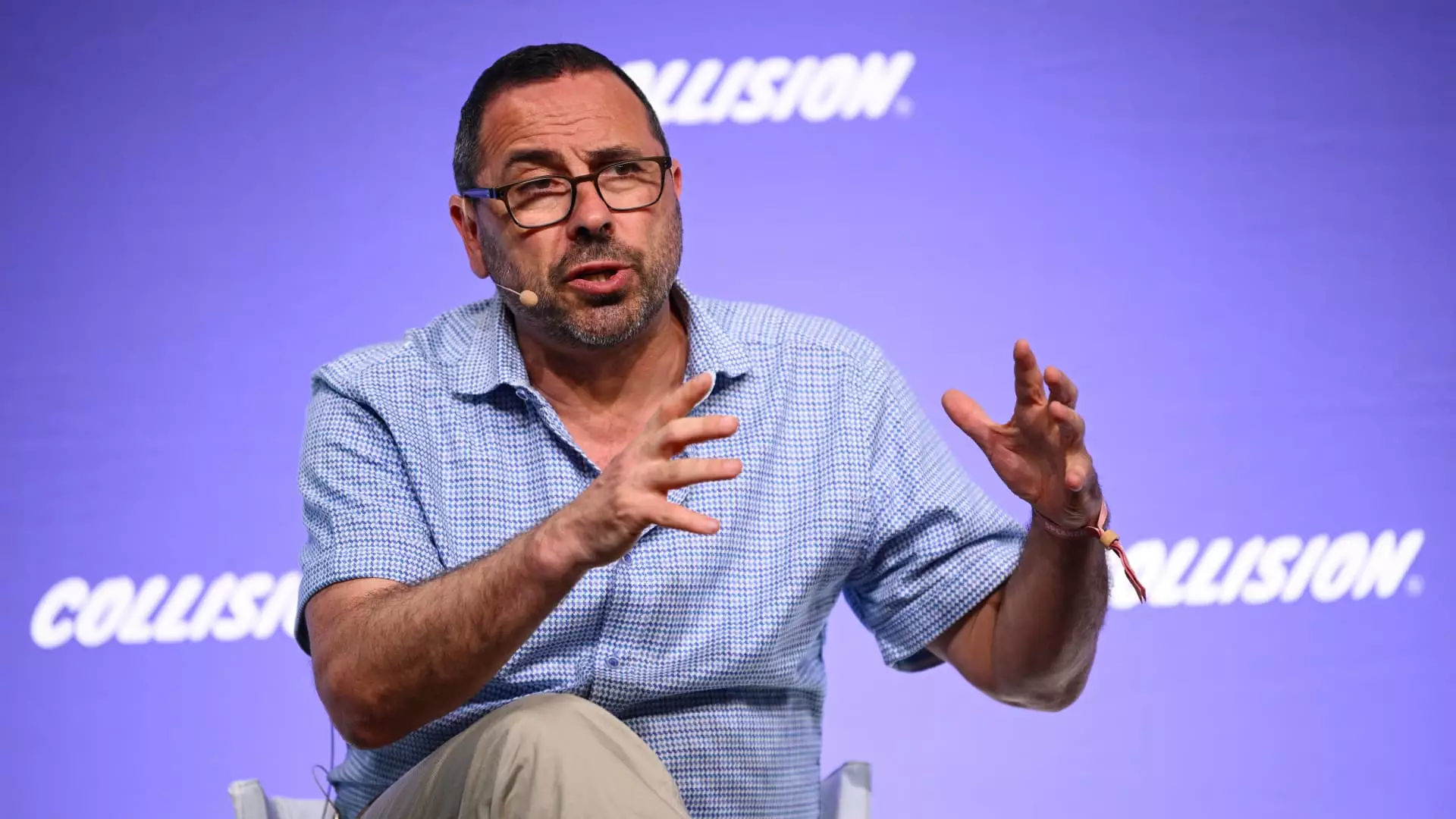Cerebras Systems, an innovative chip startup established in 2016 and based in Sunnyvale, California, has recently taken a significant step towards going public by filing its prospectus for an initial public offering (IPO) under the ticker symbol “CBRS.” This move positions Cerebras within the rapidly growing and fiercely competitive landscape of artificial intelligence (AI) hardware. In a field dominated by major players like Nvidia, whose graphics processing units (GPUs) are the de facto standard for AI model training and deployment, Cerebras aims to carve out its niche.
The company’s flagship product, the WSE-3 chip, claims to offer a competitive advantage over Nvidia’s popular H100 model by featuring a greater number of cores and more memory. However, potential investors should be wary of Cerebras’s ambitious aspirations, especially given that their chips are physically larger and may pose logistical challenges in terms of deployment and integration.
Cerebras’s financial profile shows that, despite drawing attention for its technological advancements, the startup is grappling with significant losses. In the first half of 2024, Cerebras reported a net loss of $66.6 million against $136.4 million in sales, a somewhat improved performance compared to the same period in 2023, when losses totaled $77.8 million with just $8.7 million in sales. The organization has reported a troubling trajectory, with an overall net loss of $127.2 million for the entire year of 2023.
In stark contrast to the promising growth figures, operating costs have surged due to rising personnel expenses, indicating that the company is investing heavily in talent to support its growth ambitions. This scenario raises questions regarding sustainability; while a workforce is essential for expanded operations, escalating expenses could hinder future profitability.
The AI chip market is increasingly becoming saturated, with not only Nvidia but major tech corporations like Amazon, Microsoft, and Google developing their proprietary solutions. A significant percentage of Cerebras’s revenue—83% to be exact—emanated from its partnership with Group 42, a UAE-based AI entity linked with Microsoft. This dependency on a single customer could pose risks should market dynamics shift or if Group 42 were to find alternative sources for its chip requirements.
Additionally, Cerebras faces competition not just from established giants, but also from entities developing custom application-specific integrated circuits (ASICs) and various emerging companies that may disrupt the market. This environment demands constant innovation and adaptation, as businesses seek to differentiate themselves in a landscape where technological advances occur at a breakneck pace.
One promising aspect of Cerebras’s financial future lies in its substantial commitment from Group 42, which has pledged to purchase $1.43 billion in orders by March 2025. Such significant orders could provide a runway for revenue growth, but caveats exist; Cerebras has also warned investors about potential supply chain disruptions that could impact its ability to fulfill orders.
With its capital structure leaning heavily on venture investments from firms like Foundation Capital, Benchmark, and Eclipse Ventures—along with renowned individuals such as OpenAI’s CEO Sam Altman—Cerebras stands in a precarious position. The current tech IPO climate is challenging for many startups in 2024, as investor preferences have shifted towards established, profitable companies due to elevated interest rates.
Cerebras’s move towards public trading comes amid cautious optimism within the tech sector, particularly following a recent rate cut by the Federal Reserve that has reinvigorated investor interest in growth stocks. However, the absence of industry-leading investment banks such as Morgan Stanley and Goldman Sachs from its IPO underwriting team raises questions regarding the level of confidence these financial powerhouses have in the startup’s future.
Ultimately, while Cerebras Systems possesses a strong technological foundation and a significant order commitment, it faces considerable headwinds in a competitive market. Investors flirting with this prospective IPO will need to weigh the startup’s innovative potential against its financial losses and dependency on a limited customer base. The coming years will prove crucial as Cerebras seeks not just to survive, but to thrive in an ever-evolving technological landscape.


Leave a Reply